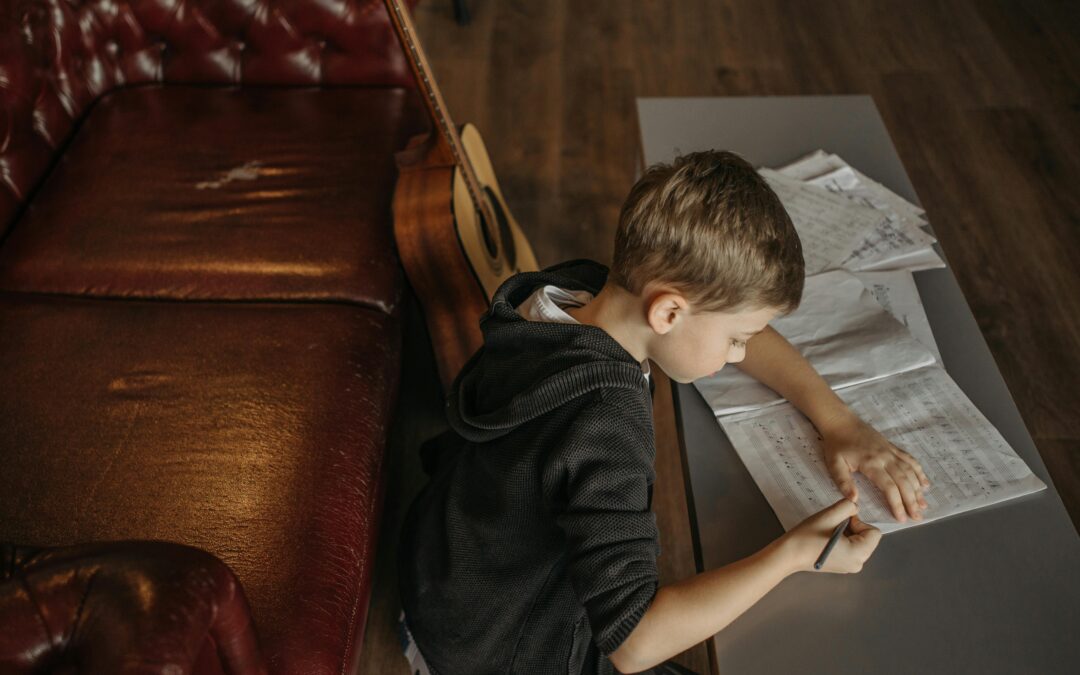From the moment a child starts to hear, music begins shaping the way their brain processes sound and communication. Beyond entertainment, music plays a powerful role in supporting children’s language development. Research continues to show that the rhythms, melodies, and patterns found in music can help kids improve their vocabulary, listening skills, and even reading abilities.
For parents, this connection makes music lessons more than just a hobby; it’s an investment in their child’s lifelong learning.
How Music Strengthens the Brain
Music and language share similar pathways in the brain. Both rely on rhythm, pitch, and memory to make sense of sounds. When children learn to recognize notes, repeat melodies, or clap in time, they’re strengthening the same auditory skills they’ll use to distinguish speech sounds.
Studies have found that children who engage in musical training often demonstrate stronger phonological awareness, i.e., the ability to identify and manipulate the sounds of language. This skill is a critical building block for learning to read and write. In other words, music doesn’t just make children better musicians; it can also make them more confident communicators.
Rhythm and Speech Patterns
Language is naturally rhythmic. The rise and fall of sentences, pauses between words, and emphasis on syllables all mirror the patterns of music. By practicing rhythm in music, whether through drumming, clapping, or playing an instrument, children sharpen their ability to recognize and reproduce speech patterns.
For example, a child learning to play a simple rhythm on the piano is also practicing the timing and pacing needed for clear speech. This connection explains why many speech therapists incorporate musical exercises into their work with children who struggle with language.
Vocabulary Growth Through Song
Songs are one of the most effective tools for expanding a child’s vocabulary. Music introduces new words in a fun, memorable way, often paired with repetition that reinforces learning. Singing also helps children practice pronunciation and articulation without the pressure of formal drills.
Parents may notice that children can sing entire songs from memory before they’re able to read the lyrics. This demonstrates how music strengthens recall and makes learning new language skills feel natural.
The Social Benefits of Music and Language
Language development isn’t just about vocabulary—it’s also about communication and connection. Group music lessons or ensembles encourage children to listen carefully, respond to others, and collaborate as a team. These social skills translate directly into more confident speaking and stronger peer relationships.
We see this link in action every day. When children share a duet, sing in a group, or practice side by side, they’re not just learning music; they’re practicing the give-and-take that makes language meaningful.
At The Music Workshop, we’ve been helping Baltimore children discover the joy of music since 1993. Our personalized lessons are designed to support not only musical goals but also the cognitive and communication skills that will serve students for life. When you’re ready, contact us to learn more about our programs.

